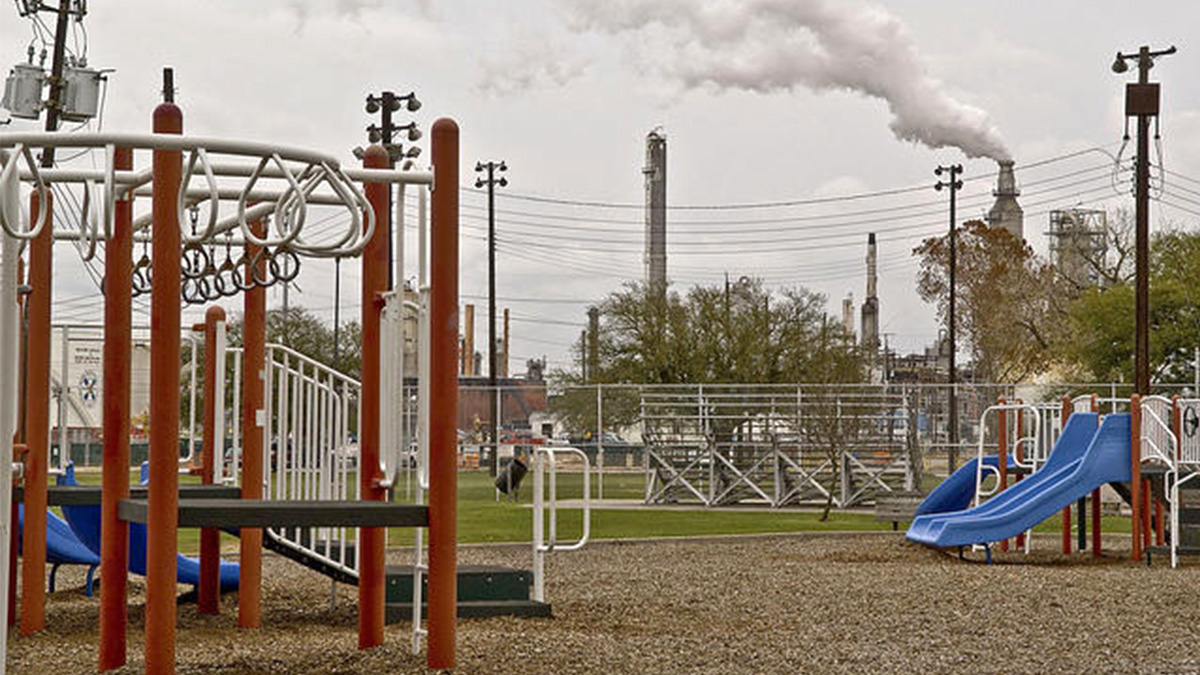
Even Small Spikes in Air Pollution Can Threaten Children’s Mental Health, Research Suggests

U.S. Environmental Protection Agency
Climate change is making air pollution worse and is exacerbating smog-related health risks such as heart and lung diseases, pregnancy complications and development issues. Now, a study by the Cincinnati Children’s Hospital Medical Center has identified another health risk associated with rising air pollution: childhood psychiatric issues.
According to the study, published in the journal Environmental Health Perspectives, short-term spikes in ambient air pollution are linked with an increase in hospital visits for childhood psychiatric issues. Also, children in low-income neighborhoods with poor access to healthcare appeared to be more susceptible to the mental health effects of air pollution.
CNN reported that while previous research has shown an association between particulate matter pollution in the air and adult mental health issues, this is the first time researchers have looked into its effect on children.
During the five-year study, researchers focused on a very small type of particulate matter called PM 2.5 — fossil fuel-powered vehicles and power plants, cooking, dust and brush fires are all sources — can be easily inhaled and end up in organs and the bloodstream, causing inflammation in the lungs or brain, and, in the long term, may trigger cancer and heart attacks.
The researchers looked at more than 13,000 visits by children to Cincinnati Children’s emergency psychiatric unit and compared it with data on the concentrations of PM 2.5 where they live. Results showed that spikes in PM 2.5 concentration were associated with increased childhood psychiatric visits one or two days later for adjustment disorder, anxiety and suicidal thoughts, while same-day visits were usually related to schizophrenia.
All daily exposures to PM 2.5 in the study were below levels set in the U.S. Environmental Protection Agency’s National Ambient Air Quality Standards, researchers said.
These spikes in air pollution increased the risk of hospitalization for suicidal thoughts by 44 percent overall, the Daily Mail reported, but the risk for children from disadvantaged areas was almost double that. These children were also 39 percent more likely to need treatment for anxiety.
The researchers noted that the study was observational and more research would be needed to rule out other causes, Newsweek reported.
“More research is needed to confirm these findings, but it could lead to new prevention strategies for children experiencing symptoms related to a psychiatric disorder,” lead author Cole Brokamp said in a press release. “The fact that children living in high poverty neighborhoods experienced greater health effects of air pollution could mean that pollutant and neighborhood stressors can have synergistic effects on psychiatric symptom severity and frequency.”
While this study only looked at PM 2.5, it builds on other recent research by Cincinnati Children’s demonstrating that exposure to air pollution in general during childhood may contribute to a host of mental health issues at an early age.
In May, researchers at the Cincinnati Children’s published a study in Environmental Research showing a link between increased exposure to high traffic related air pollution (TRAP) and generalized anxiety. Another study published in June found that exposure to TRAP shortly in early childhood was linked with symptoms of anxiety and depression in 12-year-olds.
- Young People in Polluted Cities at Greater Risk for Alzheimer's ...
- Study Links Air Pollution and Teenage Psychotic Experiences ...
- Reducing Air Pollution Has Helped Children in Northeast U.S., Study Finds - EcoWatch
- Several West Coast Cities Have the World's Worst Air - EcoWatch

 233k
233k  41k
41k  Subscribe
Subscribe 